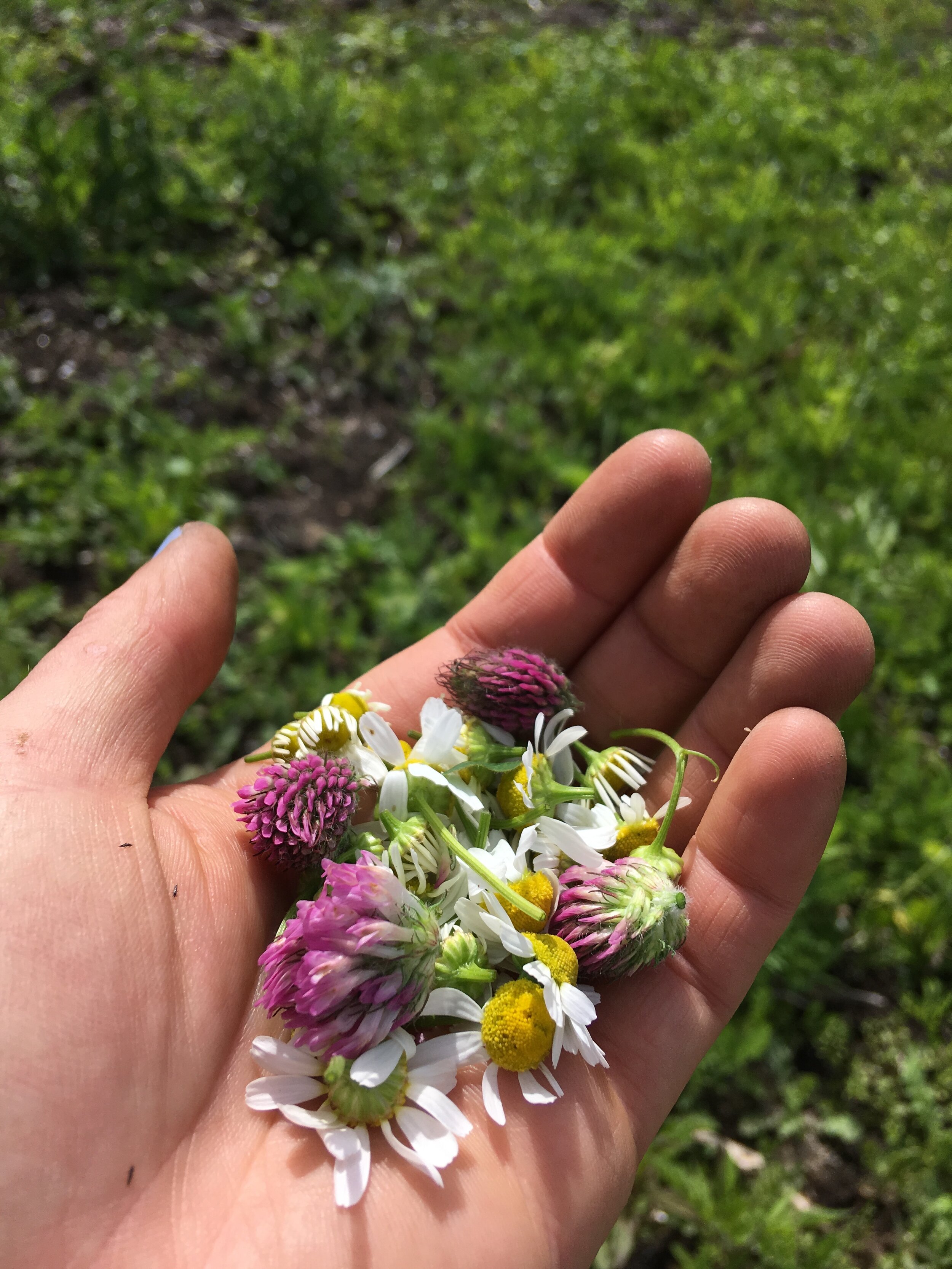
Perspective + Philosophy
Plants and people are inextricably linked- and the plants are patient. Even when we turn away-- individually or as a society-- they are waiting for us, breathing with us, and providing lessons we have only to look to for guidance.
I went through this process myself when I first started farming in 2010, having moved to Vermont from the suburbs outside Philadelphia with a passion for plants and a curiosity about the way humans create meaning in the world. While I learned plenty that year about the hard work of cultivating a living off the land, I broadened my gaze from the tilled rows to the meadow edges and realized I was surrounded by interwoven ecosystems with their own stories to tell and offerings to give.
As I began to learn the names and traditional uses of the plants, it became clear that in order to engage with plant healing, there’s a lot about the human structure, function and psyche that we must understand to effectively create meaningful shifts. This led me to study holistic anatomy with Juliette Abigail Carr, become totally enamored with the wild world within the human body, and commit to three years of study with the Vermont Center for Integrative Herbalism, including a year spent in supervised student clinic, all while continuing to grow food and medicine for myself and my community. I am learning every day about how to recognize and cultivate the complex web of life we are all weaving and mending together.
The method of consultation that I use comes from my education at the Vermont Center for Integrative Herbalism (2017-2019). I strive to create an inclusive, judgement-free space that considers your unique self within the larger context of social and environmental forces. I believe in health at every size, harm reduction, queer and trans bodily autonomy, and the innate and ancestral wisdom of our bodies in coping inside of a society that doesn’t promote wellbeing, within the greater whole of an earth that is constantly mending, healing, and building new relationships. Herbalism and other traditional healing modalities are only as useful as they are liberatory, and I am committed to working with plants as a means of building equity among humans.
I believe that every time we make a commitment to mend- our bodies, our relationships, and our world- we are building a stronger and more resilient world for ourselves.
As a liaison between plants and people, I recognize that the plants and their healing powers do not belong to me. This becomes more evident when considering the avenues through which I’ve had access to education around herbal medicine, as a white person in the so-called US practicing “Western” herbalism. The skills and knowledge at my disposal come to me through lineages of diaspora, colonialism, migration and extraction, without proper credit or compensation to the indigenous keepers who first held them. I have learned much of what I know about plant medicine from the unceded territory of the Abenaki people.
I am grateful to my teachers at Vermont Center of Integrative Herbalism, Old Ways Herbal, Wild Current Herbalism, and the many teachers whose works I have read and heard. Most of these teachers have been white herbalists of European descent, and we share an educational lineage that owes a great debt to the midwives, hedgewitches, Indigenous medicine people and Black African land stewards who have shepherded, shared, and often hidden or lost their traditions in the process.
I focus on bioregionally available and locally abundant plants in my apothecary- much of the medicine I stock is grown and harvested within a few miles of where I live, from the farm fields, meadows and edgelands that house a diverse bounty of species. Many of these plants are not native to this landscape, but neither am I. How can we hold the balance between working with plants from our diverse ancestral lineages (many of which have come to densely populate the northeastern US/Eastern Woodlands) and forming partnerships with plants that are indigenous to this area? I view my role as a steward of the land that I harvest from, a role that requires being in consistent conversation with the plants: Who is really bountiful this year? Who needs tending without harvesting? What was the impact of last year’s harvest on this year’s population?
Engaging in these questions with plants directly informs the way I engage with human people and their diverse needs. I seek to meet people where they’re at, honor their unique experiences, and provide insight and tools to engage with plants for healing.



